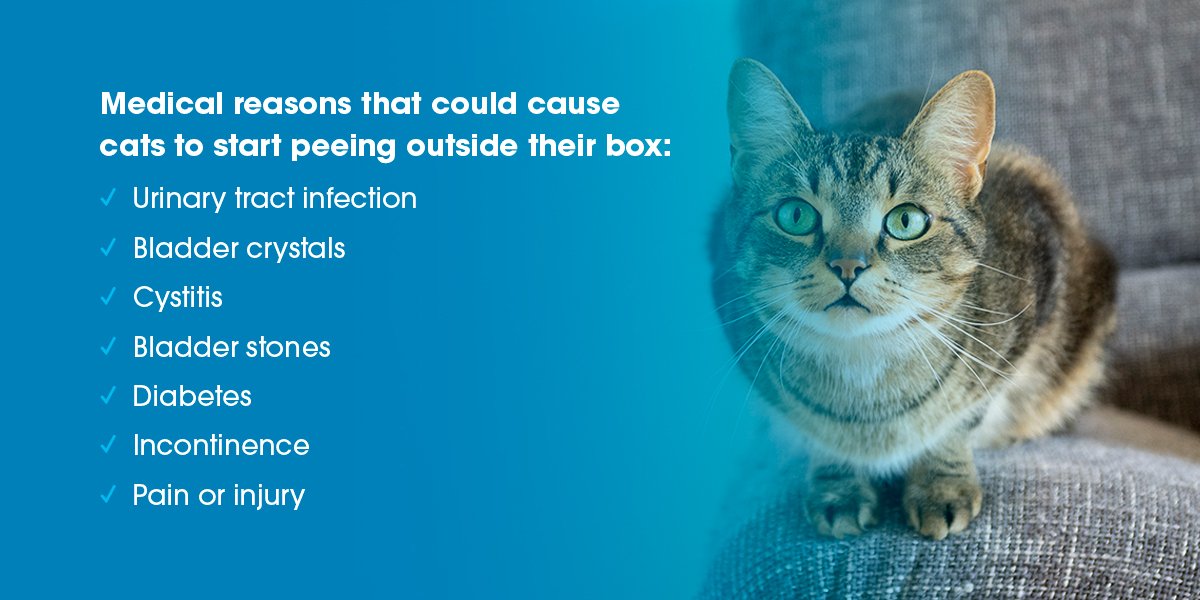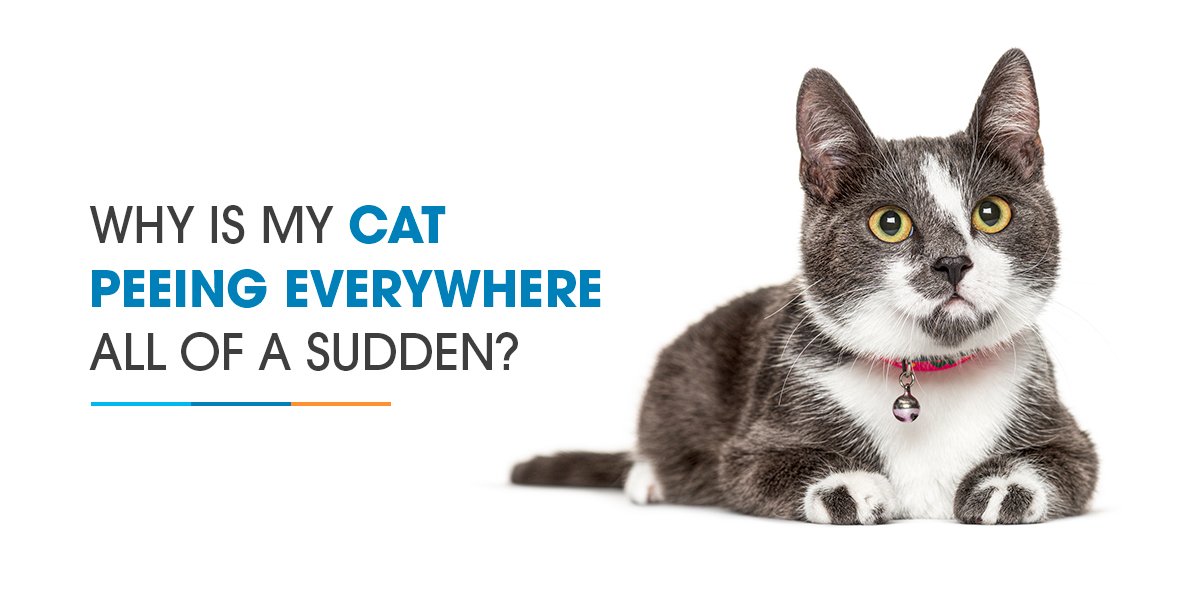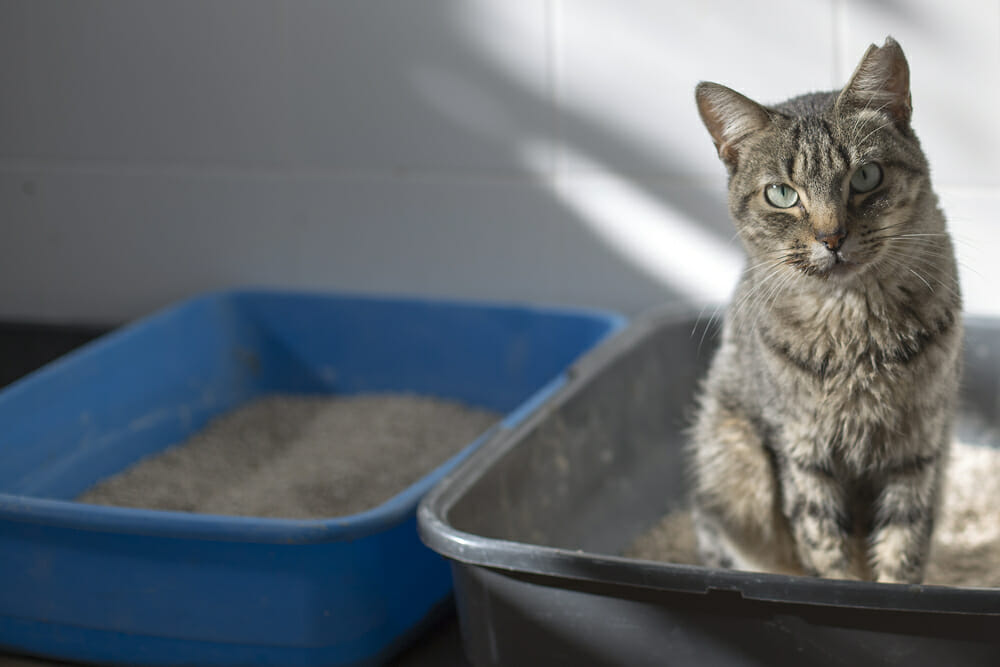Why Is My Cat Peeing Outside the Litter Box? Causes and Solutions
Perhaps you can relate to this scenario. Charline’s cat, Bilbo, tends to leap onto her laptop during Zoom meetings. He knocks beverages onto the floor and shreds and rolls about in the remnants of the toilet paper. Though Max’s antics are never-ending, his latest spot of mischief has Emma wondering whether cats pee out of spite—Max has now started to urinate all over her fresh linen.
Call to Schedule a Checkup With Your Vet:
In spite of how premeditated a cat’s shenanigans may appear, most experts agree these behavioral problems are usually driven by instinct. Studies show that cats value attention and time spent with their owners. So, it’s only natural for Max to impose himself when he needs Emma to spend more time with him. He might knock things off the table to get her attention, but more often than not, he’s just playing with them. Take heed, however, when cats urinate outside of their box, as this is a common symptom of a medical condition.
What Does It Mean if Your Cat Is Peeing Around the House?
A cat peeing in the house can either be a reaction to something distressing or a symptom of a medical condition. The only way to rule out illness is to have the urine checked by a veterinarian.
There are several medical reasons that could cause cats to start peeing outside their box:

1. Urinary Tract Infection: Though rarely found in cats with good kidney function, your cat may have a urinary tract infection. The good news is that such infections are usually resolved within a week of proper treatment. It is important to be on the lookout for urinary tract infection symptoms as bladder infections can recur. Incorporating more canned food in your cat’s meals helps increase their water intake and can be an effective way to prevent another bout.
2. Bladder Crystals: Your cat could also be experiencing irritation caused by microscopic crystals in their bladder. Crystals in cat urine are often associated with a diet of primarily dry food. However, they can be caused by any condition that changes the pH of your cat’s urine, such as kidney disease or chronic medication.
3. Cystitis: A condition called cystitis, which causes bladder inflammation, could also be the culprit in cats that eat primarily dry foods.
4. Bladder Stones: Your cats may even suffer from small stones in their bladder that can cause irritation. Blood in your cat’s urine is a common symptom of this condition.
5. Diabetes: A less common possible cause of urination outside the litter box is diabetes. This condition could prove fatal to your cat without proper treatment.
6. Incontinence: Incontinence is sometimes experienced in mature or overweight cats, as well as large breeds.
7. Pain or Injury: Your cat’s ability to use the litter box could also be hindered if they are ill or in pain as a result of an injury or another reason.
How to Tell if Your Cat Has a Urinary Problem:
It is important to be on the lookout for any changes in your cat’s peeing habits and to act quickly when they arise. This is because each cat experiences a different level of discomfort and they may not exhibit all the most common signs of a urinary problem. Your vigilance can help keep your cat comfortable and help them be treated for any issues promptly.
The most common symptoms to observe include:
- Frequent attempts to urinate where little or no urine is passed
- More frequent visits to the litter box
- Straining or taking longer than usual to pass urine
- Crying while peeing
- Licking genital area excessively
- Frequently urinating outside the box
How to Tell if Your Cat Is Reacting to Stress:
If your cat is not ill, they may be peeing around the house because they are distressed about something in their home environment and need you to make them feel more comfortable. The following could be stressors:
1. Your Cat Has Trouble Using or Accessing Their Box:
Cats have a keen sense of smell, and their toe pads are extremely sensitive. They may start looking for another place to pee if their box is dirty and smelly or if the texture of the litter is too coarse. Cats may also opt for an easier place to pee if there isn’t enough room in the box to move, squat, and eliminate, or if there is insufficient litter to dig a hole and cover when they are done.
The location of the litter box is also an important consideration. Cats need to pee in an area with sufficient privacy from their siblings, where they feel safe and have an unobstructed view of their surroundings. Older or obese cats may have grown to have trouble getting into the box. These cats will prefer to pee somewhere closer to their usual nook in the house, especially if the litter box is placed too far from it. Cats may also avoid the box if it is located in a clamorous area.
2. Your Cat Is Feeling Anxious or Stressed Out:
A cat may have trouble controlling their bladder and could forget their routines when they are in distress. Disruptive changes in their environment such as moving to a new home, the adoption of more pets and loud noises could make them nervous, causing them to pee in inappropriate areas.
3. Your Cat Forms a Habit After Pee Stains Are Not Cleaned Properly:
When areas outside the litter box are not completely clean when the cat has peed, they could develop a habit of returning to that area to pee again. Thoroughly cleaning the affected areas with an agent that neutralizes the smell of urine and removes stains is crucial in retraining your cat to use the litter box and avoiding undesirable habits.
Steps to Take When Your Cat Suddenly Starts Peeing Around the House:
When you notice your cat urinating in areas outside the litter box, take these steps:
- Consulting your veterinarian should be the first thing you do when you notice your cat has suddenly changed their bathroom routine. Even occasional signs of this behavior could be a symptom of a urinary problem that needs medical attention.
- Clean soiled areas with a product that neutralizes the odor and eliminates pee stains. This can help prevent your cat from returning to pee in the same spot.
- Ensure your cat has their own litter box that is cleaned regularly and is positioned in an easily accessible area of the home that is not too busy or noisy. Opt for soft, unscented litter.
- Avoid yelling at or scolding your cat when it pees in the house. This can make the cat nervous and exacerbate the problem. Use soft and soothing tones when communicating with your cat to ensure they feel comfortable and safe.
- Offer positive reinforcement when your cat uses the litter box to help retrain them into this routine.


